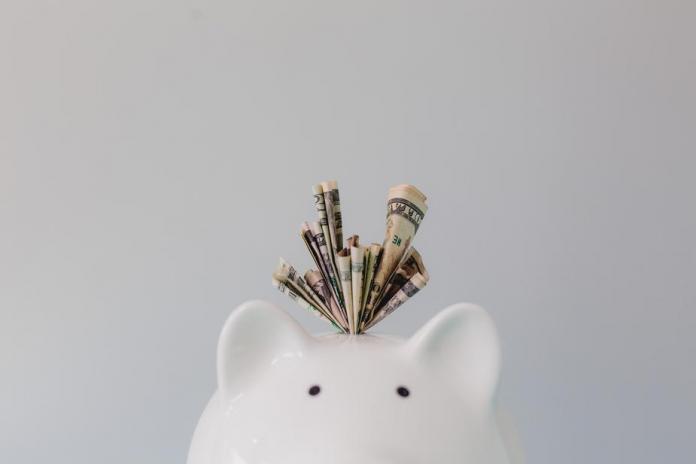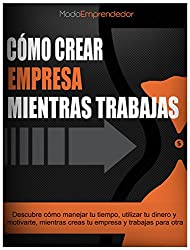
You will have already heard expressions such as: “You never know”, “it is better to be safe than sorry” or “just in case”. These terms have become so common and at the same time so obvious that we tend to overlook them, and it is exactly the same when we talk about having an emergency fund.
What is an emergency fund.
An emergency fund is a basic risk management tool that we all need to implement within our personal finances.
It is a key element of any financial plan. And the good thing is that it is easy to implement. Essentially, it is a set amount of money which You will always be available in case of unexpected events.
That’s right, you never know when you might have an emergency and need some extra cash.
What would happen if you lose your job or have an accident? Do you have enough money saved to cover this type of eventuality?
Also read: 5 excellent ideas to make extra money and from home.
If you have it… Perfect! That means you are saving and planning for your future. However, that is not the situation of the majority of Latin Americans. Savings rates are low and this means that few have an emergency fund.
According to analyzes carried out by the Ibero-American Development Bank, the World Bank and the International Monetary Fund; Latin America and the Caribbean save 15% less than Asian countries and Advanced Economies.
Likewise, only 16% of the Latin American adult population claims to have savings in a bank compared to the strongest economies; where 50% of its inhabitants claim to have savings.
With this in mind, we have decided to write this article to explain what an emergency fund is, why you should have an emergency fund, and how to create an emergency fund.
Why you should have an emergency fund.
It is unusual for a person to plan expensive repairs to their home or car. Likewise, no one plans to be fired from their job. However, even if we have the best luck in the world, at some point in our lives we are going to face a financial difficulty and it is better to be prepared; They tend to happen when you least expect it.
Also read: Losing your job can be the best of news.
Insurance is part of the emergency funds. Although they generate an expense, mostly annual, you will appreciate having insurance for your car in case you crash. Or insurance for your home in case of theft. Also medical insurance in case of accident. Never ever think that nothing will ever happen to you.
Likewise, to have a solid financial strategy, it is necessary that you have cash saved in your account for emergencies. This to cover those unexpected expenses that could force us into debt, to borrow money, to use credit cards; or even to withdraw severance pay or retirement funds.
If something unwanted happens, an emergency fund allows you to continue with your life without affecting your finances.
How much should I save for my emergency fund?
The most indicated thing is that you save between 3 and 6 months in living expenses to create your emergency fund.
Living expenses typically refer to expenses that are absolute necessities. Such as housing costs, debt obligations, food, and medical care.
Eating out, new clothes, vacations, or any other variable expenses of a similar nature should not be included in the 3-6 month calculation.
This is why you should make a budget. If you don’t have a budget and would like to know how to do it; You can read the following two articles that will guide you step by step:
1. How to make an easy and fast budget (Step by step guide).
2. Make a simple budget using these 3 categories.
Depending on your job security, your family situation and other sources of liquidity; the amount you must save can change. At a minimum, you’ll want to have at least 3 months of living expenses available in cash.
2 Examples of how to create an emergency fund.
For example, let’s say you work for a company and have a service contract. You are single and currently paying off student loans. You should consider accumulating enough cash at the higher end of the spectrum; that is, it exaggerates a bit.
Your goal should be to save enough money to eat, pay your debts (Credit and student) and ensure your subsistence for at least 6 months.
If you are a married person, with two sources of income from different employers. You have no debts and you have home equity. 3 months of living expenses in your emergency fund is likely to be adequate.
Each individual and each family has a different situation. These examples are just to give you an idea of the spectrum of scenarios and the possible need for a smaller or larger emergency fund as a result.
How to save to create an emergency fund.
Although saving seems an impossible task; it is our bad habits and customs that make saving a headache for most.
Unfortunately our society encourages spending; not at the investment level but towards waste. All companies want to sell more and more and that is why they bombard you every day with new products that at the moment of truth you do not need.
So you must have very clear objectives that allow you to make sound spending decisions; and consequently, save not only to create an emergency fund, but so that you can invest in the future.
You can find excellent saving methods in the following articles. So you can create your own emergency fund and start building the foundations of a solid financial plan.
1. How to save money when my salary is not enough.
2. How to save and have more and more money.
3. 4 savings strategies for when you think you can’t save.
And remember, if you are really interested in creating your own business, you can read our book “How to create a company while working: Discover how to manage your time, manage your money and motivate yourself while creating a company and working for another” , where you will find all the information you need to found your own company, without having to leave your job.


